|
One in ten people on the planet do not have access to safe water; that’s more than twice the population of the United States. “Little Ones” are by far the most vulnerable. A child dies every sixty seconds from water-borne illness. When someone shares a cup of pure water with a thirsty child it does not go unnoticed in heaven.
0 Comments
Go BIG or go home! It’s the battle cry of the western world, tempting us all to believe our worth is measured by the size of our resume. Jesus, on the other hand, seems to value small things—things like cups of cold water given to little children and small coins given to God by poor widows. Jesus celebrates and blesses people who hunger and thirst for righteousness. He lifts up the meek and says they will inherit the earth. He loves when people give themselves to peacemaking; those who do, he calls children of God. Jesus values small expressions of righteousness, justice, and peace, over and above grand displays of personal achievement.
According to Jesus, the kingdom of heaven is an invisible reality that modifies the visible culture surrounding it. The parable of the yeast implies that a micro expression of God’s kingdom, done in secret, will alter the world on a macro level. The world is blessed when church folk take a pass on power, position, and privilege, and choose instead to lead beloved communities in the simple way of Jesus. 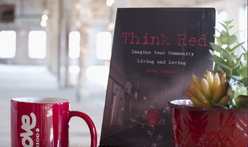 Think Red explores the upside down kingdom of Jesus and invites the reader to imagine a community built on his counter–cultural values. The scene is the Last Supper; Jesus is pouring out his heart and sharing final instructions with the disciples. He’s not surprised to discover his friends are only half listening. They are distracted by a familiar argument . . . who among them was considered the greatest? Jesus doesn’t rebuke them for wanting to be great, he simply redefines the meaning of greatness by asking: “Who is greater, the one who is at the table or the one who serves?” After a moment to ponder the obvious, Jesus points out: “But I am among you as one who serves.” In the eyes of our competitive, consumer-driven world, the one at the table with the most power and possessions is regarded as the greatest. In the economy of heaven, and in the eyes of Jesus, it is the one who serves.
What Would Jesus Do? In the 1980’s W.W.J.D. was a thing! Christians and non-Christians alike bought the paraphernalia; everything from bracelets, ball caps, and T-shirts. But only the committed put the “What Would Jesus Do” bumper sticker next to their “Honk if You Love Jesus” sticker! I still remember the day I peeled the W.W.J.D. sticker from the rear window of my Minivan. It was the Christmas season of 1987. I was making a mad–dash on Christmas Eve to do some last–minute shopping. Traffic was bumper–to–bumper. The mall parking lot was covered with snow. Red tail lights, from the caravan of cars searching for a place to park, reflected on the slushy white surface. It was my third pass through the parking lot when I spotted an open space on the front row. In the corner of my eye, I saw another car heading for the open spot. The race was on! A proud smirk of victory covered on my face as I pulled into the space, a full two links before my competition. When I stepped out of my van an elderly, grey–haired lady drove past; she slowly rolled down her window and said, “I don’t think that’s what Jesus would do!” My smirk of victory turned into a frown of shame. The lady was right. As she drove off his words echoed in my ear: “When someone invites you to a wedding feast, do not take the place of honor, for a person more distinguished than you may have been invited. If so, the host who invited both of you will come and say to you, ‘Give this person your seat.’ Then, humiliated, you will have to take the least important place.” (Luke 14:8-9) What would Jesus do is a great question to ask before making decisions. I wish I had asked it of myself before I raced the older—and more distinguished lady—to the parking space of honor. What Would Jesus Do, is a question made popular by Charles Sheldon’s book, In His Steps. First written in 1896, the book has sold more than 50,000,000 copies and ranks as one of the best–selling Christian books of all time. It was a “pop classic” in the 1980’s and inspired the W.W.J.D. craze. There is no doubt, Sheldon’s question strikes at the core of Christian discipleship; but here lately I’ve been wondering, are there other questions that will lead me deeper into the heart of Christ? Or to ask it another way, how does a disciple of Jesus move beyond imitating Jesus, to letting the character of Christ be formed in his or her heart? In my quest to follow Jesus, I have discovered two nuances of the W.W.J.D. question that call for a more personal and contextual response. How Would Jesus Live My Life if He Were I? Dallas Willard takes the W.W.J.D. question to a whole new level by asking a similar question, with a more personal twist. In his book, The Divine Conspiracy, Willard challenges the disciple of Jesus to ask her or himself, “How would Jesus live my life if he were I?” This nuance will move the conversation from situational ethics—searching for the moral high ground when faced with an ethical dilemma—to a personal encounter with the living Christ; learning how to live and move and have your being, in the same manner in which Jesus lived and moved and had his being. According to Willard, “a disciple, or apprentice, is simply someone who has decided to be with another person, under appropriate conditions, in order to become capable of doing what that person does or to become what that person is.” Hence, a disciple of Jesus, signs on to spend time with Jesus—through grace and choice, through study and reflection on the Gospel narratives, through taking seriously what Jesus said and how he lived, and through the presence of the Holy Spirit in the life of the disciple—in order to learn how to do what Jesus did and to become what Jesus is. Simply put, the goal of Christian discipleship is to develop Christlike character and Christlike competency. Mike Breen, the founder of 3DM, says it like this: “At the end of the day, we can probably boil being a disciple down to two things: Character and Competency. We want the character that Jesus has and we want to be able to do the things that Jesus could do (competency). Discipleship is learning, over the course of our lives, to become people who have both.” The reason Jesus invites people to follow him is rooted in his desire to help people live their best lives and become their true, authentic self—the self, God created them to be. Jesus knew how to live a truly authentic human life. He knew how to live his life—step by step, breath by breath—in the kingdom of God, and he knew how to apply that kingdom for the good of others. Furthermore, he knew how to make a way for others to experience the kingdom for themselves. This was his mission and his passion; it’s what he was good at! Therefore, the invitation to follow Jesus, is an invitation to learn how to live in the kingdom of God, here and now, in a way that is authentic to who you are. Instead of learning how to do everything Jesus did with his life, disciples of Jesus are challenged to do everything they do in the same manner Jesus did all that he did. The goal of Christian discipleship is to learn from Jesus how to live your life in the kingdom of God; or to say it another way, to do what you do in the manner Jesus would do it if he were you. The question, “How would Jesus live my life if he were I?” takes into account my real–life experience, including my biological make–up and my history? We can ask the same question in a dozen different ways: How would Jesus live my life if he had my DNA? My mind? My heart? My emotions? How would he live my life if he had my talents and my limitations? My passions, interests, and dreams? How would Jesus live my life if he had my family of origin? Mary and Joseph were rock star parents. They played a big role in the formation of Jesus’s character; but what if Jesus had my parents? How would Jesus live my life if he lived through the formative experiences I had, or endured the traumatic experiences I endured? What if Jesus worked where I work and reported to my boss? How would he do my job? What would he pursue as a vocational calling if he were I? How would Jesus live my life if he were married to my spouse and given the responsibility of raising my children? These questions demand personal responses that are worked out in conversation with the living Christ. When taken seriously and pursued diligently, they will help you discover your true self. Over time you will learn to operate in the kingdom of God in ways unpretentious and authentic. Your character will begin to reflect the character of Christ and you will cultivate the competency to leverage the kingdom of God, not only for yourself, but also for the good of others. What Would Jesus Do if He Lived in My Neighborhood? Yes, Christian discipleship must be personal, but it cannot be private. Following Jesus—learning how to do what Jesus would do if he were I—includes caring about my community in the same manner Jesus cared for his. Asking, “What would Jesus do if he lived in my neighborhood?” offers yet another layer to the W.W.J.D. question; one that leads the disciple into conversations about incarnation, mission, and context. Jesus, as God incarnate, was sent on mission to a specific place and culture, during a specific time in history, for a specific purpose. Even though our world, and the diversity of cultures that flavor our planet today, are far removed from the Jewish culture of first century Judea, the missional purpose of Jesus remains the same. His mission--to proclaim good news to the poor, freedom for the prisoners, relief for the oppressed, recovery of sight for the blind, and to set in motion the kingdom of heaven of earth--is as relevant today as it was when he commissioned his first disciples. The challenge for the twenty–first century disciple is to advance the mission of Jesus incarnationally, in ways that are relatable to the context they find themselves in. Contextualizing the Christian gospel in ways that are relatable to the culture, and yet congruent with the ways of Jesus, is not a simple assignment. Two things must inform our efforts at living on mission with Jesus. First, we must pay close attention to the things Jesus said, taking them to heart and making every effort to put his words into practice. Second, we must take note of the way Jesus was with people, observing what he valued and how he lived in community, and then adopting his way of being in community as our own. Henri Nouwen observed the way of Jesus and concluded his way was the way of downward mobility—a way of humility and service, a way that leads to the poor, and ultimately to the cross. Doing what Jesus would do will lead us down the path of humility and service. Any sign of discrimination or injustice, that would have disturbed Jesus, will disturb us. We will learn to ask the hard questions about inequity in our context and wonder what Jesus would do in response to the inequity. The questions will prompt us to live beyond the walls of our comfort. We will be compelled to pray for a more just society and we will seek ways to become the answer to our prayers. Asking “How would Jesus live my life if he were I?” and, “What would Jesus do if he lived in my neighborhood?” will fan the flames of spiritual formation. They turn up the heat on two fronts: personal piety and social holiness. When taken seriously, they move the disciple beyond imitating Jesus and pave the way for cultivating the character and the competency of Christ. As helpful as these questions are, there is one problem: They're too long to fit on a bumper sticker! Quotes:
Willard, Dallas. The Devine Conspiracy: Rediscovering Our Hidden Life in God. New York: Harper Collins, 1966. Breen, Mike. https://vergenetwork.org/2011/09/21/mike-breen-why-the-missional-movement-will-fail-part-2/ Nouwen, Henri J.M. Here and Now: Living in the Spirit. New York: Crossroad, 1994. Stoess, Larry. Think Red: Imagine Your Community Living and Loving Like Jesus. Oregon, Cascade Books, 2021. When a young candidate for ministry asked a seasoned elder in our church how to discern the will of God for her life, the elder smiled and said, “Shucks, we all do what we want to do and then call it God’s will.” I laughed along with the rest of the preachers in the room. We laughed because it resonated with our experience, but none of us would have said it out loud. We would have searched for a more spiritual response, one that offered words of wisdom for the young neophyte. This conversation happened years ago. With each passing year, I’ve become more and more convinced that the elder’s response wasn’t a reductionist view of God’s will; on the contrary, it was a golden, tidbit of wisdom. I’ve come to believe the best way to discern God’s will for our lives is to pay attention to the true desires of our own heart and then pursue those desires with all the passion and gratitude we can muster. The psalmist says it like this, “Trust in the Lord and do good; dwell in the land and enjoy safe pasture. Take delight in the Lord, and he will give you the desires of your heart.” (Ps. 37:3–4) The key to discerning God’s will is to trust, dwell, and delight in God; do this and your heart’s desire will become a trustworthy guide—a compass that will help you discover God’s great desire for your life. If you find yourself in the same spot as my young friend, asking, “What is God’s will for my life?” Here are three things you can do to help bring clarity and confidence to your decisions about the future. Trust God with your whole heart and do good. Learning to trust and follow the desires of your heart starts with trusting God more than you trust yourself. Proverbs 19:2 says, “Desire without knowledge is not good; how much more will hasty feet miss the way.” The danger of making life decisions on the whims of your heart, without engaging knowledge, is the simple fact that our hearts are easily deceived; and sometimes, they are flat–out deceptive. When we make trusting and knowing God our number one priority, God will help us distinguish between our pseudo passions, (the desires rooted in lust, greed, and selfish ambition) and our real passions, (the desires rooted in our true selves, those God-given desires for the things of life that make us fully human.) A good guide for making life decisions when you’re not sure if you can trust your heart is to follow John Wesley’s three simple rules: Do no harm. Do good. Stay in love with God. Dwell in the boundaries of God’s land. Sometimes people forget how big God is and fail to grasp how vast are the boundaries of God’s kingdom. It is a mammoth mistake to shrink God’s kingdom to church property, church business, and Christian ministry. When Christians live in a “church-centric” bubble they are prone to forget the boundaries of God’s land includes all of life—every eco-system on the globe, every person on the planet, and every social sphere in society. If you are trying to discern God’s will for your life, it is good to remember, you are free to dream as big as your heart desires. The sky is the limit. There are a gazillion ways for you to join God in God’s redemptive mission of reconciliation. Jesus had a vision for creation. He saw a time looming in the future, when his followers would live in community, loving God, loving their neighbors, and loving the planet in such whimsical ways that the realities of God’s kingdom would actually become the realities of earth. Anywhere you live, everywhere you go, whatever you put your hands to doing, presents an opportunity for you to express God’s will and help Jesus fulfill his vision. Delight in the Lord. If you are perplexed about a vocational decision or trying to discern what to do next with your life, push the pause button and remember—God is more interested in your relationship with God than what you do for God. Guard your heart, don’t let the values of this world—the values of expediency, up-ward mobility, fame, fortune, and the like—be the measures with which you base your decisions. Instead, delight in God. Drink deep from streams of joy and find time to soak in God’s presence every day. Sing loud. Laugh often. Look intently for the signs of God’s presence everywhere you go, most especially in the people you meet along the way. When you delight in God, the joy of the Lord will become your strength; and like Jesus, the joy that is set before you, will help you navigate difficult decisions and endure the most challenging circumstances. (See Hebrews 12:2.) Your desires will be grounded in your true self and reveal the person God created you to be.
In Galatians 5:16, Saint Paul says, “Walk by the Spirit, and you will not gratify the desires of the flesh.” These three instructions from Psalm thirty–seven provide an excellent picture of what it looks like to walk in the Spirit: trust God wholeheartedly; stretch the boundaries of your life to include all of God’s kingdom; delight in God every day. “If you want to give it all you’ve got,” Jesus replied, “go sell your possessions; give everything to the poor. All your wealth will then be in heaven. Then come follow me” John 8:12 “The compassionate life,” says Henri Nouwen, “is the life of downward mobility . . . the descending way of Jesus. It is the way toward the poor, the suffering, the marginal, the prisoners, the refugees, the lonely, the hungry, the dying, the tortured, the homeless—toward all who ask for compassion.” Jesus invites the rich young ruler—and all others who read this red-letter story—to free themselves from the talons of consumer-driven idolatry and to follow him on the descending way of compassion. It is good to remember this invitation is in response to the rich man’s question: “What must I do to gain eternal life?”
“I am the light of the world. Whoever follows me will never walk in darkness, but will have the light of life.” John 8:12 Anthony de Mello, author of The Song of the Bird, tells a parable called Searching in the Wrong Place: A neighbor found Nasruddin on hands and knees. “What are you searching for, Mullah?” “My key.” Both men got on their knees to search. After a while the neighbor said, “Where did you lose it?” “At home.” “Good Lord! Then why are you searching here?” “Because it’s brighter here.” Some would say: “If you want to Experience God, look around and see where God is moving—the place where the light is brightest—and join God there.” Perhaps it would be better to embrace the shadows in our own souls, observe where darkness is looming in our neighborhoods, and then take the light of Christ into the darkness.
“If any of you wants to serve me, then follow me. Then you’ll be where I am, ready to serve at a moment’s notice.” John 12:26 Following Jesus presents us with the same dilemma E.B. White wrote about: “I arise in the morning torn between a desire to improve the world and a desire to enjoy the world. This makes it hard to plan the day.” The art of Christian discipleship is learning to serve the world and savor the world simultaneously. Follow Jesus today and he’ll show you how.
“Then he said to them all: “Whoever wants to be my disciple must deny themselves and take up their cross daily and follow me. For whoever wants to save their life will lose it, but whoever loses their life for me will save it.” Luke 9:23–24 In his book, The Cost of Discipleship, Dietrich Bonhoeffer writes, “When Christ calls a [man or woman] he bids them come and die.” It’s not the best pick–up line . . . “come and die” . . . but it is the great proposal Jesus offers. He invites us to trade our self–suffocating narcissism for a life defined by self–sacrificing love and grace. Following Jesus and learning the ways of his upside–down kingdom, (where the first are last, the poor are favored, the weak are strong, and the oppressed are set free) is a life worth living for; and Bonhoeffer knew first hand, it was a life worth dying for.
|
AuthorLarry Stoess is an author, public speaker, and urban church planter. He loves telling stories about how dreaming with God will empower people to make old and broken things new again. Larry and a band of friends founded the Church of the Promise in Louisville's Portland neighborhood; The Table, a pay-what-you-can community café; and Promise Housing Plus, a non-profit construction company. He has written about their experience of dreaming with God in his new book: Think Red. Archives
August 2023
Categories |
|
Contact Us |




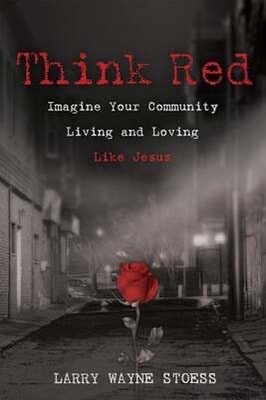
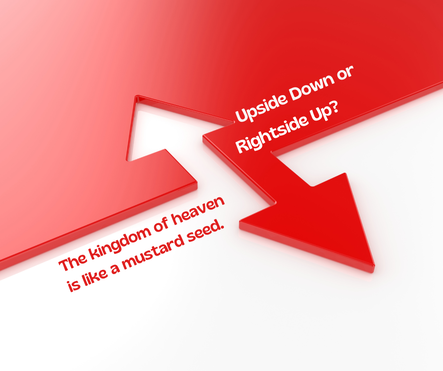
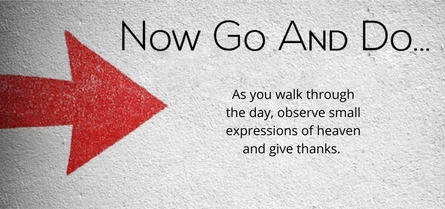
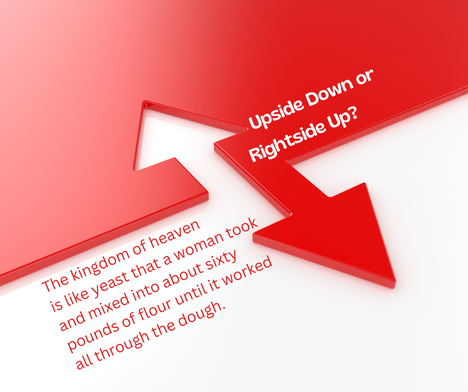
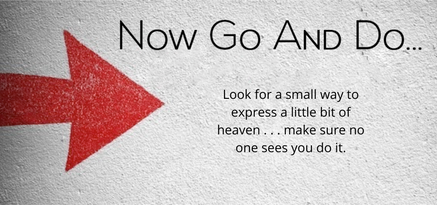
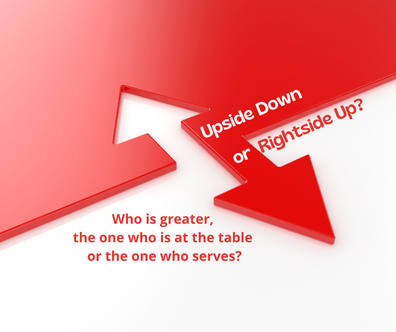

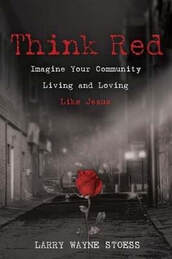









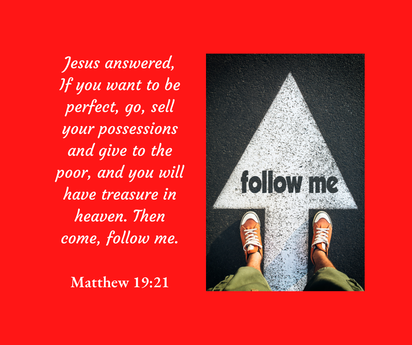


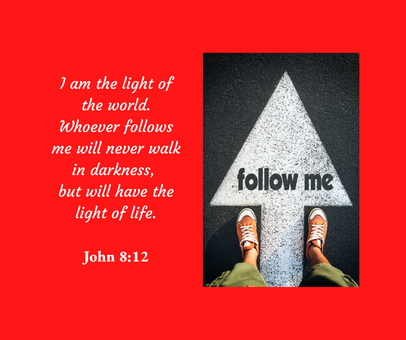

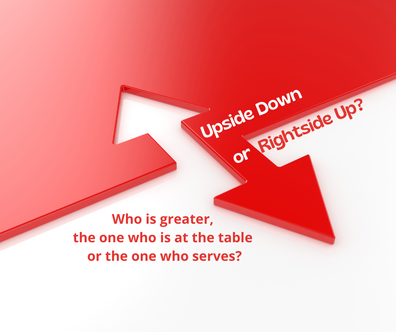




 RSS Feed
RSS Feed